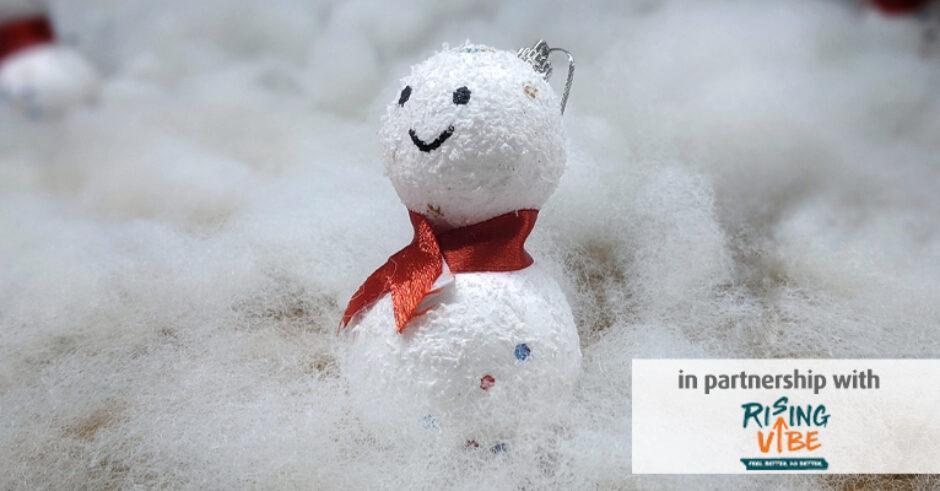I don’t know about you, but it feels like there’s a lot of pressure on Christmas this year. The shops may be empty but I’ve seen Christmas decorations up since the day after Halloween. The pubs are closed, but the promise of 5 days with 3 families has got us all excited about finally holding our loved ones close, after almost 12 months of isolation. After the year we’ve had, goodness knows we need some festive cheer in our lives.
Christmas is heavily marketed as a time of joy. We’re bombarded with TV, radio and online ads around the perfect family Christmas. Our social media feeds are full of people living their best Yuletide lives…this year is all that, with jingle bells on.
For most people Christmas is a time of great joy, but for a lot of people it isn’t. We’ve always challenged the framing around Christmas here at Rising Vibe. When you’re besieged with joy from all angles and you don’t feel it, the pressure to be joyful can make you thoroughly miserable. What if you don’t have 3 families to spend Christmas with this year? What if you don’t have anyone? The pain of loneliness is really magnified at Christmas anyway, but this year, there’s been a great deal of loss.
Loneliness – ‘sadness because one has no friends or company,’ is social pain.
We’re hard wired to connect, so if we’re lonely, isolated and disconnected from others, it hurts. Literally. Neuroscience tells us that when we feel social pain, the Anterior Cingulate engages. It’s the same part of the brain that lights up when we feel physical pain, so loneliness can be physically as well as mentally debilitating.
Nobody wants to feel lonely. But what about solitude – ‘the state or situation of being alone?’ Isn’t that the same thing? Actually it isn’t. Solitude is completely different. So different in fact, it can mean the difference between a very high and very low vibe.
Think about the situations in which you have your OWN best ideas. Those lightbulb moments of inspiration. Where are you? What are you doing? Are you in the bath? Driving your car? Walking the dog? On the loo? I’d bet the contents of my Christmas stocking that in whatever situation you’re in, you’re alone.
Solitude is an amazing state for learning and growth.
Being alone means being productive. It means space for thoughts and ideas. It means no interruptions. In Nancy Kline’s book – ‘More Time To Think’ , she says,
The quality of what we do comes from the quality of our thinking.
Solitude gives us that head space to think, to realise and to process ideas without interruption. We use the ‘time to think’ approach regularly with our clients. Yes, teamwork and brainstorming have their place, but when we ask our clients, ‘When do you do YOUR OWN best quality thinking?’ everyone gives us a scenario in which they’re alone. Solitude in business can mean innovative, creative, ground-breaking ideas.
I’ve seen people thrive in solitude during the pandemic, but I’ve also seen people lonely and desperate to get back to the hustle and bustle of a busy office. With Christmas just around the corner, we need to remain vigilant around the difference between loneliness and solitude. As a business leader it’s important to think about this with your people.
If you want to know how to enable an environment where solitude is embraced to facilitate growth and learning, as well as how to tackle the social pain associated with loneliness and isolation, please get in touch with Rising Vibe today.
The Business Transformation Network has shared this article in partnership with Rising Vibe.

